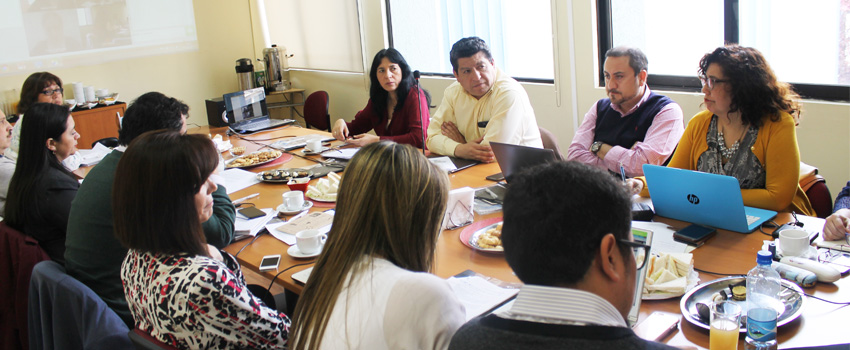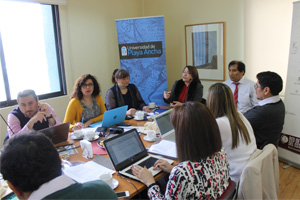- News
Institutional coordinators of the Network of State Ues meet at the UPLA

The institutional coordinators, who represent their respective universities in the management of the Network Framework Agreement, coordinating a series of thematic subnetworks in which all state universities are also represented, met at the UPLA and scheduled a workshop seminar that will allow them to exchange good practices between the different planning teams.
The planning teams of all the universities of the State of Chile will meet next Monday, November 6, at the U. de La Frontera, to participate in a workshop seminar that will mean a new advance in collaborative work within the University Network of the State and the first milestone in the execution of its Multiannual Plan 2016-2020.
The agreement was made during the last meeting of the institutional coordinators of the Network, which took place at the University of Playa Ancha (UPLA). They represent their respective universities in the management of the Network Framework Agreement, coordinating a series of thematic subnetworks in which all state universities are also represented.
 In that sense, the meeting at the UPLA was dedicated to an analysis of the budget execution of the agreement and to learn about reports on the work in the subnetworks.
In that sense, the meeting at the UPLA was dedicated to an analysis of the budget execution of the agreement and to learn about reports on the work in the subnetworks.
Work was also carried out to define the organization and logistics of the Network, - which was born from the agreement signed at the end of 2015 as an instance of collaboration between the State Universities - which demands the creation of new structures that account for the development of network work.
According to Mario Inostroza Ponta, director of Institutional Development of the University of Santiago and Institutional Coordinator of the Network Framework Agreement of the same institution, “it is necessary to generate these planning processes that allow generating future actions without going through the participation of specific people.” .
Regarding this new way of acting, in which the emphasis is placed on collaborative work between all the universities of the State, Inostroza commented that “it has been difficult for us to overcome the barrier of autonomous work. It is difficult to understand that a university should not have the leading role, but that it is the state universities, as a body, that have to have the leading role. “We want it to stop being like that and not compete, but really cooperate.”
Greater articulation, greater impact
The important thing is that progress is being made in the formation of this network of university networks. The vice-rector for Development and institutional coordinator of the UPLA, María Francisca Briones, assures that greater organization and joint work is already seen. “It has been key that we ourselves, as institutional coordinators, have learning, greater articulation from our different disciplines, since we are not all from the same disciplines, which has strengthened this network of coordinators.”
A great qualitative leap will be made next month, when the Universidad de la Frontera (UFRO) hosts the planning teams from across the Network, so that they can meet, integrate and exchange good practices during the seminar.
That day will be the first milestone of the Multi-Annual Plan already outlined. The next day, November 7, the institutional coordinators of the Network will meet again to define a complete formulation of this plan, which will include the guidelines of each state university but at the same time of the system as a unit. This will allow each subnetwork to have clear guidelines to formulate their action plans.
“And there we are going to be facing it in an absolutely coordinated way, with a network of state institutions working for a common objective, with a vision of what state, public universities are,” said María Francisca Briones.
What is this common vision? According to the vice-rector for Development of the UPLA, networking aims to “not compete but rather collaborate, cooperate, advance based on what we want for our territories, support from the perspective of what we want to have a society of the future, integrated and thinking especially about those we are training, who will later reach out to society to continue contributing.”
With greater coordination and the Multi-Annual Plan to guide actions at least until 2020, added Mario Inostroza, “any initiative, any project that is generated from the networks, will have an impact that will no longer be only at the local level of a university but can become national… So, allocating resources to these activities will have a much greater impact on the student population and the community in general.”
Source: Press Network of State Universities of Chile
